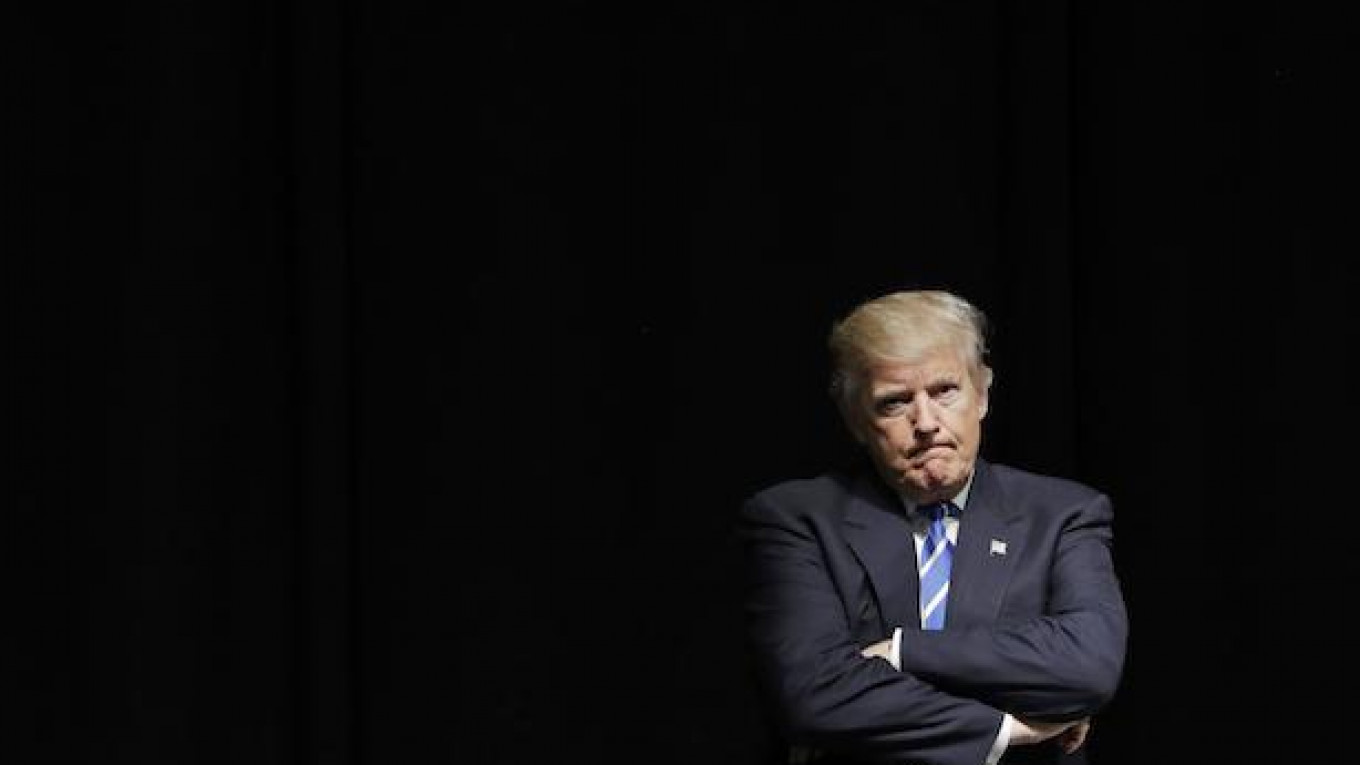“The grand godfather” of the alt-right — this was how U.S. presidential candidate Hillary Clinton described Russian President Vladimir Putin in a speech on Aug. 25. In so doing, she unsubtly made another link: if Putin is the godfather, Donald Trump is merely his stooge, obeying all orders from Moscow.
It isn’t hard to understand the main propaganda benefit of Clinton’s narrative. It derives from the fact that Putin is a foreigner, president of a country that for 45 years was America’s Cold War adversary, and is now showing open hostility once again.
Whenever you are, nothing mobilizes voters quite like an exterior threat. This “outside threat” — whether Muslim refugees in Europe, Polish migrants in Britain, or EU bureaucrats in Poland — has served as the pillar of political success for parties across the political spectrum. And yes, it is also playing well for the republican presidential candidate.
It’s natural for Clinton to try and counterattack with Trump’s own weapon.
But she must also know very well that the phenomenon of Donald Trump cannot be totally attributed to covert activities of Russian intelligence agencies. Rather, his popularity is a direct result of a deep moral and cultural crisis that has dogged the Republican Party and much of American society for almost a decade. That same crisis has now engulfed the rest of the developed world, with alt-right populists emerging in many parts of the EU — from Britain to Poland.
The Cold War image of Russia as a hostile alien civilisation makes it easy to paint every traffic jam as a conspiracy plotted by the Kremlin. Trump is every bit a comic Russian oligarch, or the twin brother of LDPR party leader Vladimir Zhirinovsky. But he is also living proof that Russia is a fixture of the Western political and cultural realm.
Russia, in fact, is the West’s Dorian Grey canvas— a realistic depiction of its darker sides usually hidden in the attic. Now, with Trump at the gates of Washington, the portrait and the model of its darker self are looking strikingly similar again.
Putin’s regime grew out of a cultural and political vacuum, in a thoroughly exhausted society. He grew in popularity just at the moment when any illusions about the West opening its arms to Russians finally evaporated. The prospect of Euro-atlantic democratic integration offered to former satellites was explicitly denied to Russia, leaving pro-democracy Russians in limbo and at the mercy of predatory capitalist elites.
Back in the early 1990s, Russia was anything but nationalist. In January 1991, a huge rally, one of the largest in Russia’s history, was held in support of Baltic independence. In the same year, Russia signed off on the dissolution of the Soviet Union, without demanding Crimea from Ukraine or northern regions from Kazakhstan. It could easily have done this, and would have met with little to no resistance. But that would have gone against predominant sentiments in Russian society.
Russia is for the West a Dorian Grey canvas: a realistic depiction of its darker sides usually hidden in the attic.
Putin’s current ideological paradigm emerged in the 1990s as a reaction to the East European “blood and soil” nationalism. It was a nationalism promoted by the West as a way of creating broad coalitions to topple pro-Soviet regimes.
However, once the de-occupation was achieved, genuine liberals were pushed aside, and rival nationalists and ex-Communists would run the show in these Eastern bloc countries for the next 25 years. Eventually, and feeling no obligation to keep up with Western standards, countries like Hungary and Poland would naturally slide into Putin-styled authoritarianism.
In today’s language, you could say Russia began to troll its East European neighbours. It both copycatted and mocked the half-rotten ideological leftovers from the totalitarian epoch. At the same time, Russia's new ideology was also steeped in post-modernist counter-culture, and had very little to do with Soviet legacy.
Pornographic author Eduard Limonov, deathporn mockumentary director Alexander Nevzorov and crypto-fascist dissident philosopher Alexander Dugin played a greater role in shaping this ideology than all tsars, Communist leaders and KGB agents put together. Prior to 1991, these men were on the margins, cast aside as anti-Soviet dissidents. They were punks, just like like their contemporary, Yegor Letov of the Grazhdanskaya Oborona band, whose nihilist anthems shaped the worldview of a generation.
But in the years to come, they would author the language and ideological outlook of the new Russia. Dugin and Limonov conceived national-bolshevism — a peculiar synthetic ideology, bordering on a modern art project, fusing communism and fascism, symbols and rhetoric. Nevzorov meanwhile invented the "Nashi," or "our guys" brand, a powerful mobilization tool that appealed to the Russian tribal subconsciousness. The unexpected victory of Vladimir Zhirinovsky’s LDPR (a radical alt-right party that cynically called itself liberal-democratic) in the 1993 Duma election proved that the new arsenal of tools could rally millions at a time of deep cultural crisis.
Later, national-bolshevism was mixed with Christian fundamentalism and punk-era mischief by the likes of Father Sergei Chaplin, a priest who once authored a satirical dystopia about a future Russia ruled by perverts and political correctness. In the early 2000s, web entrepreneur Konstantin Rykov, considered the tsar of Kremlin trolls, streamlined fledgling cyberpunk and trolling counter-culture into the anti-liberal direction.
All these ingredients were blended together by the Kremlin’s PR genius Vladislav Surkov. Taking an actionist art approach to his spin doctor job, Surkov became the author of a new political reality. This reality most closely resembled the work of Russian post-modernist writers Viktor Pelevin and Vladimir Sorokin.
While Western political analysts continued to generate a lot of hot air about the Communist legacy and the revival of the KGB old-guard, Russia’s new capitalist elite was busily engaged in cutting-edge social engineering. Western liberals proved powerless and blind to the new possibilities. They had neither the language to describe it, let alone weaponry to counter.
In other words, Putin and his ideologists have been riding the alt-right surf long before the European far-right. And now they are looking at the rise of the alt-right in the West with understandable schadenfreude and opportunistic glee.
The Kremlin’s true aspirations may have never extended beyond keeping the regime’s rating high and their petrodollars safe, but life has presented them with an opportunity to watch a self-inflicted destruction of the Western unity, and to loot the ruins when it happens.
A Message from The Moscow Times:
Dear readers,
We are facing unprecedented challenges. Russia's Prosecutor General's Office has designated The Moscow Times as an "undesirable" organization, criminalizing our work and putting our staff at risk of prosecution. This follows our earlier unjust labeling as a "foreign agent."
These actions are direct attempts to silence independent journalism in Russia. The authorities claim our work "discredits the decisions of the Russian leadership." We see things differently: we strive to provide accurate, unbiased reporting on Russia.
We, the journalists of The Moscow Times, refuse to be silenced. But to continue our work, we need your help.
Your support, no matter how small, makes a world of difference. If you can, please support us monthly starting from just $2. It's quick to set up, and every contribution makes a significant impact.
By supporting The Moscow Times, you're defending open, independent journalism in the face of repression. Thank you for standing with us.
Remind me later.








